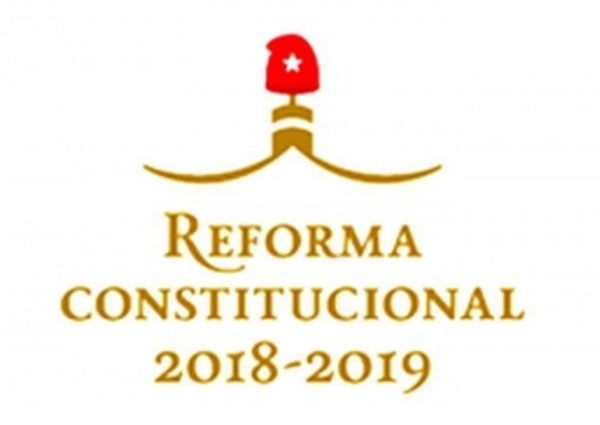
The consultation process on the draft constitutional reform for Cubans living abroad began last August 31st
The Cuban Foreign Ministry announced August 31 the beginning of the consultation process on the draft constitutional reform for all Cubans living abroad, through the online form posted on the Ministry of Foreign Affairs’ “Nation and Emigration” website at: http://www.nacionyemigracion.cu.
On this site, and through the official Cuban Foreign Ministry Facebook and Twitter accounts, as well as those of Ernesto Soberón Guzmán, director of Consular Affairs and Cuban Residents Abroad, users can also find a video tutorial that explains the steps to follow to ensure their effective participation in this process, and a series of recommendations on submitting proposals for modifications or comments on the draft constitutional text.
Cuban health collaborators providing their services in 66 countries will actively participate in the debate on the draft Constitution of the Republic, Deputy Director for Cuba’s Central Medical Cooperation Unit (UCCM) Jorge Delgado told Cuban television reporters.
Delgado assured that the necessary organizational conditions have been created to conduct the process, including providing the relevant documents and establishing a timeframe for Cuban doctors, nurses, and health technicians to adequately prepare to participate in the process where they live or work.
Preparatory meetings have also been held, and the training of two-person teams who will moderate the discussions conducted, the UCCM official explained.
SUBMITTING ONLINE PROPOSALS FROM ABROAD
- Accents should not be used when entering information. The letter ñ is allowed (code Alt+64).
- The passport number does not need to be in use, details of an expired passport may be entered should the user not currently have a valid passport.
- The passport number consists of a letter and six numbers. There should be no spaces entered between the characters.
- Any name acquired through marriage with someone who is not Cuban should not be included as a second name.
- Paragraph numbers must match the 755 paragraphs in the draft Constitution.
- In the “Observations” section, any clarifications or comments that complement the proposals made can be included.
- The page includes security controls to prevent automated submissions. Users must type the CAPTCHA (Completely Automated Public Turing Test to tell Computers and Humans Apart) code shown in order to submit their proposals. The code is not case sensitive.
- The term “Category” describes any proposal aimed at removing, including, or changing words or phrases of a paragraph. The different categories are as follows:
Modification: Any proposal aimed at removing, including or changing words or phrases in a paragraph.
Addition: The inclusion of a new paragraph with an idea that does not already appear in the text. In this case, in paragraph number, 0 (zero) must be entered.
Elimination: Proposed exclusion of a paragraph as unnecessary or due to opposition to its content.
Doubt: In the case of paragraphs, sentences or phrases that are not understood, result in confusion or generate uncertainty.
- Users’ names, first surnames, date of birth, passport number, sex, country of permanent or temporary residence, the paragraph number, category and opinions are all mandatory fields.
 Escambray ENGLISH EDITION
Escambray ENGLISH EDITION





Escambray reserves the right to publish comments.